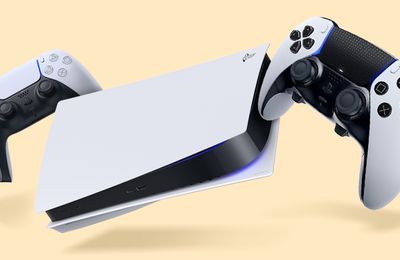Best and worst mobile networks: Big Four providers outperformed by smaller rivals

Smaller mobile networks impressed again in our latest annual satisfaction survey, with high customer scores and incredibly cheap deals. This makes a welcome change in ‘Awful April’, when prices for energy, water, council tax, trains and other services all increased.
We asked more than 4,000 mobile customers about their experiences in the past 12 months and found a wide range of opinions. Generally, customers of the Big Four (EE, O2, Three and Vodafone) face higher prices and worse customer service, and continue to be hit by annual price increases.
In contrast, several smaller networks are providing exceptional satisfaction to their customers. These networks are recognised by our endorsements, either as Which? Recommended Providers or Great Value for Sim-only deals.
For full results of our survey – and to learn which mobile providers we recommend – read our round-up of the best and worst UK mobile networks.
The UK's major mobile networks compared
The Big Four mobile networks provide services to around 70% of the UK’s mobile customers. However, they didn't reach the same high standards achieved by smaller providers that piggyback on their network infrastructure.
- EE achieved the highest customer score of the Big Four and put a little distance between itself and the other three. It received only one four-star rating, though, and customers had poor opinions on the value of roaming and the incentives available.
- O2 usually returns a consistent but unimpressive row of three-star ratings, however this year customers are less impressed. Most ratings have dropped to two stars, and the network slides nearer to the bottom of the table.
- Three, for a second year in a row, had not only the lowest customer score of the Big Four, but the lowest of any provider we rated. Only 39% of its customers said they hadn’t experienced a problem in the past 12 months, the least of any provider we rated.
- Vodafone had a fairly mediocre year, with a mixture of two and three-star ratings and an average customer score. It's set to merge into one network with Three later this year, which might help to improve performance.
For more information on switching and how to choose a provider with the best signal, read our full guide on how to switch mobile provider. Then use our mobile comparison service to find a cheap deal to switch to.

How to get real value on mobile contracts
New Ofcom rules prevent networks from using inflation and percentages to calculate annual price rises. Instead, they must state at the start of a contract, in pounds and pence, how much it will increase by. This helps customers to decide between different networks, as it’s easier to work out the total value of a contract and see if it represents good value. If it involves increases, it most likely doesn’t.
These price increases range from £1 to £4 a month. The latter impacts EE customers on bundled contracts, where the phone and Sim price isn’t split. See the full rundown of 2025 mobile price increases to find out if you're affected.
Larger networks often justify higher prices and annual increase by claiming they invest in their network infrastructure, and that their incentives and reward schemes add value. However, no provider in our survey received more than a three-star rating for incentives, and the Big Four didn’t manage more than two stars, so mobile customers aren't thrilled by what’s on offer.
Instead, the top of the table was dominated by providers offering excellent value for money, with a lower monthly cost and no mid-contract price hikes. All Which? Recommended Providers or Great Value networks got at least five stars for this category. Other ratings – such as customer service, value for money while roaming, and communication quality and frequency – were also generally higher for these networks.
This year we’ve given 10 endorsements to eight networks, so chasing lower prices doesn’t limit your choices.
A rolling monthly contract with a virtual provider is the best way to avoid inflation-based price increases and take advantage of better, newer deals as they emerge. If the provider raises prices, you can switch to a different network at the end of the month. Alternatively, look for a 12, 18 or 24-month Sim-only contract with a fixed price guarantee, from networks such as Giffgaff, iD Mobile or Talkmobile.
For full results for each of these providers and to see how they compare with smaller competitors such as Lebara and Smarty, head to our mobile provider reviews.
Which? urges mobile customers to make the most of better, cheaper options
It's clear that there's real value in the mobile market, no matter your data needs. But that's only the case if you take action at the end of a contract and manage your options carefully.
Natalie Hitchins, Which? home products and services editor, said: 'Our research shows that smaller providers are outshining the biggest mobile network firms across the board.
'Many smaller providers offer better customer service, more reliable connections and cheaper Sim-only deals without any mid-contract price hikes – giving their customers more certainty about what their monthly bill will look like.
'Any customers who are nearing the end of their contract and are unhappy with their current provider, or could stand to make savings, should not hesitate to vote with their feet and move to a different provider.'
News, deals and stuff the manuals don't tell you. Sign up for our Tech newsletter, it's free monthly



